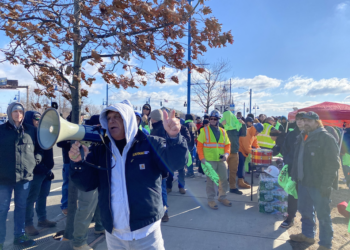A former broker for David Lerner Associates Inc. in Hartsdale has been sanctioned for recommending unsuitable high-risk investments to elderly customers.

The Financial Industry Regulatory Authority suspended Russ Kory on Sept. 2 from associating with any member of the organization for three months, fined him $5,000 and ordered him to disgorge $7,203 in commissions for failure to observe “high standards of commercial honor.”
He voluntarily consented to the sanctions on Aug. 29.
Kory registered with FINRA in 2011 and went to work in Lerner”™s Hartsdale office.
In April 2021, Lerner disclosed that Kory was no longer employed as a broker because of an arbitration case filed by a customer.
In that case, arbitrated by FINRA, the customer sought $350,000 to $750,000 in damages for an unsuitable and misrepresented investment and for breach of fiduciary duty. Kory settled the case this past July for $45,000, according to a FINRA BrokerCheck report.
The investment in that case was Energy 11 LP, an oil and gas limited partnership started in 2013 and offered exclusively by Lerner.
The plan was to acquire oil and gas properties, drill the sites and distribute profits to investors. After five to seven years, the properties would be sold and the net proceeds distributed to investors. Or, it would merge with another entity or be listed on a national securities exchange.
Investors had to have a net worth of at least $150,000.
Energy 11 LP invested in oil and gas properties in the Sanish oil field in North Dakota, according the U.S. Securities and Exchange Commission records, and Lerner raised more than $374 million from the offering.
The FINRA consent order cites a rule that requires brokers to have a reasonable belief that an investment is suitable, based on the customer”™s investment profile: age, financial situation and needs, tax status, objectives, investment experience, investment time horizon, liquidity needs and risk tolerance.
From 2015 to 2019, the consent order states, Kory recommended two of Lerner”™s oil and gas limited partnerships to three customers “without having a reasonable basis to believe those illiquid investments were suitable for the customers.”
When the limited partnerships were first offered to the public they were “blind pools,” meaning that the properties to be acquired were not identified, and the prospectuses said they involved a high degree of risk.
Kory recommended a $382,000 investment to a retired couple that wanted to provide long-term care for their disabled son; a $25,000 investment to an unemployed 86-year-old widow living on fixed income; and a $50,000 investment to the widow”™s son-in-law who wanted to preserve funds for his approaching retirement.
Kory received $7,203 in commissions.
The consent order does not say how much money the customers made or loss on the deals.


















